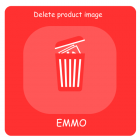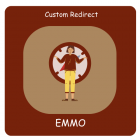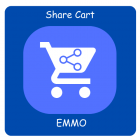Magento GraphQL: Subscribing Emails to Newsletters

Magento GraphQL: Subscribing Emails to Newsletters
Magento GraphQL is a powerful tool that allows developers to interact with Magento’s backend efficiently. One essential feature for eCommerce websites is managing newsletter subscriptions, which can now be achieved using GraphQL queries and mutations. This guide will show you how to subscribe emails to newsletters using Magento GraphQL.
Table Of Content
Magento GraphQL: Subscribing Emails to Newsletters
To add an email to your Magento store's newsletter via GraphQL, use the subscribeEmailToNewsletter mutation. This mutation requires the email address you wish to subscribe.
Here's how to structure your mutation:
In this mutation, the email field is mandatory. The status field in the response will indicate the result of the subscription request.
Possible response statuses include:
SUBSCRIBED:The email was successfully added to the newsletter.UNSUBSCRIBED:The email was successfully removed from the newsletter.NOT_ACTIVE:The newsletter subscription feature is not active.ALREADY_SUBSCRIBED:The email is already subscribed to the newsletter.INVALID_EMAIL:The provided email address is not valid.- SUBSCRIBED: Email successfully subscribed to the newsletter.
- ALREADY_SUBSCRIBED: The email is already subscribed.
- INVALID_EMAIL: The provided email is invalid.
- NOT_ACTIVE: Newsletter subscription feature is disabled.
- UNSUBSCRIBED: The email has been removed from the newsletter.
Ensure that the email address you provide is valid to avoid errors. This mutation is available for both guests and registered customers.
Tip
To enhance your eCommerce store’s performance with Magento, focus on optimizing site speed by utilizing Emmo themes and extensions. These tools are designed for efficiency, ensuring your website loads quickly and provides a smooth user experience. Start leveraging Emmo's powerful solutions today to boost customer satisfaction and drive sales!
FAQs
How Do I Subscribe an Email to the Magento Newsletter Using GraphQL?
Use the subscribeEmailToNewsletter mutation in Magento GraphQL to subscribe an email address to your store's newsletter. The email field is mandatory in the mutation.
What Is the Structure of the Newsletter Subscription Mutation?
The mutation should be structured as follows:
mutation {
subscribeEmailToNewsletter(
email: "[email protected]"
) {
status
}
}
What Response Statuses Can I Expect from the Subscription Mutation?
The possible response statuses include:
Do I Need Authentication to Run the Newsletter Subscription Mutation?
No, the subscribeEmailToNewsletter mutation is accessible for both guests and registered users. However, ensure the email format is valid to avoid errors.
Can I Customize the Newsletter Subscription Response in Magento?
While Magento's default GraphQL response includes a status field, you can customize your GraphQL schema or create additional modules if needed to handle custom responses.
How Can I Verify the Subscription Was Successful?
Check the Magento admin panel under Marketing > Newsletter Subscribers to confirm if the email has been added to the subscriber list. Alternatively, verify the response status of the mutation.
What Errors Might Occur During the Subscription Process?
Common errors include INVALID_EMAIL for incorrect email formats and NOT_ACTIVE if the newsletter feature is disabled. Ensure your Magento newsletter configuration is correctly set up.
How Do I Enable the Newsletter Subscription Feature in Magento?
Go to Stores > Configuration > Customers > Newsletter in the Magento admin panel and enable the newsletter subscription option. Save the changes and clear the cache.
Do I Need to Set Up Cron Jobs for Newsletter Subscriptions?
Cron jobs are not required for the subscription process itself. However, they are essential for sending out scheduled newsletters and managing subscriber lists effectively.
What Should I Do if the Newsletter Subscription Mutation Fails?
Double-check the email address format, ensure the newsletter feature is enabled in Magento, and clear the Magento cache. If the issue persists, verify your GraphQL setup and permissions.









